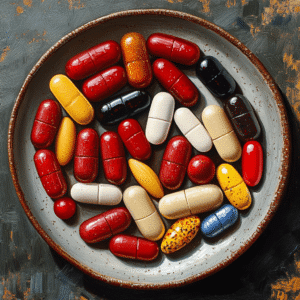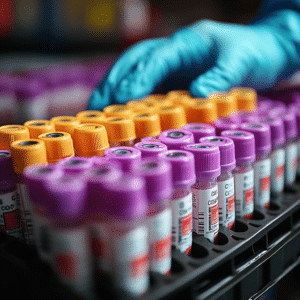Alcohol poisoning is a severe, life-threatening condition caused by consuming large quantities of alcohol in a short period. The duration and severity of alcohol poisoning depend on factors like individual tolerance, weight, and the type of alcohol consumed. Understanding how long alcohol poisoning lasts and the associated risks can help prevent and manage this dangerous situation.
Understanding the Symptoms of Alcohol Poisoning
Alcohol poisoning manifests through a variety of symptoms that can vary in their onset and duration:

How Long Does Alcohol Poisoning Last?
The duration of alcohol poisoning can fluctuate, typically depending on the amount consumed and the timeliness of medical intervention. Here’s a breakdown:
1. Initial Acute Phase (0-12 Hours)
The initial phase begins shortly after excessive alcohol consumption:
2. Post-Acute Phase (12-48 Hours)
Once the acute symptoms are managed, the subsequent 12-48 hours are critical for continued monitoring:
3. Recovery and Monitoring (2-7 Days)
After the initial 48-hour period, a phase of gradual recovery follows:
| Aspect | Description |
| Duration of Symptoms | Alcohol poisoning symptoms can potentially last for up to 24 hours as the body metabolizes the alcohol. |
| Metabolism Rate | Alcohol is metabolized at an average rate of 0.015 grams per 100 milliliters per hour, which reduces BAC by 0.015 per hour. |
| Immediate Risks | Non-responsiveness, irregular or no breathing, hypothermia, and choking. Immediate medical attention required (Call 911). |
| Long-term Risks | Coma and death are potential outcomes if immediate medical intervention is not sought. |
| **Factors Affecting Duration | Individual factors like sex, medication use, and overall health can cause varying rates of intoxication and recovery. |
| Fatality Statistics | About 30% of alcohol poisoning deaths involve individuals who struggled with alcohol use prior to their death. |
| Body’s Recovery | The body will naturally recover as it continues to metabolize alcohol, if the individual survives immediate critical dangers. |
Can You Die From Alcohol Poisoning the Day After?
A crucial concern for many is whether you can die from alcohol poisoning the day after the initial alcohol intake. Sadly, the answer is yes.
Case Study: Amy Winehouse
This underscores the importance of early and sustained medical intervention and observation, even if the acute alcohol consumption occurred the previous day.

Risks Associated with Alcohol Poisoning
The risks of alcohol poisoning transcend the immediate physical symptoms and can include:
What To Do During an Alcohol Poisoning Incident
Prompt response to a suspected alcohol poisoning incident can save lives. These steps are essential:
Raising Awareness and Taking Preventive Measures
Education and prevention are key components in addressing the risks associated with alcohol poisoning.
Understanding the full scope of alcohol poisoning, its potential duration, and the associated risks can empower individuals and communities to take proactive and informed actions. By raising awareness and fostering supportive environments, we can make strides in preventing this life-threatening condition and support those affected by it.
Additional Reading Resources
For further reading and understanding, explore these resources:
Conclusion
Alcohol poisoning is a dire condition requiring immediate and informed intervention. Knowing how long alcohol poisoning lasts, recognizing the symptoms, and taking appropriate steps can mean the difference between life and death. By educating ourselves and our communities, we can better support those struggling with addiction and hopefully prevent tragic outcomes. Let’s commit to being informed, vigilant, and compassionate in our efforts to combat alcohol poisoning and its devastating effects.
How Long Does Alcohol Poisoning Last? Discover Risks
The Duration Dilemma: Alcohol Poisoning’s Time Frame
The big question on everyone’s mind—how long does alcohol poisoning last? Well, it depends on several factors, including the amount of alcohol consumed, individual tolerance levels, and how quickly the body metabolizes alcohol. Typically, alcohol poisoning can linger for about 24 to 48 hours. However, symptoms often persist as the body continues to break down and get rid of the alcohol. Curious about the mechanics of it all? This process can be better understood by learning how you get alcohol out of your system.
From Sips to Symptoms
Did you know that alcohol starts to affect your body almost as soon as you start drinking? That’s right, it takes only about 30 minutes to two hours for alcohol to kick in. But the real kicker is that this immediate buzz might last much longer if consumed in large quantities, leading to potentially dangerous outcomes like alcohol poisoning. Once the poisoning occurs, individuals often keep experiencing various symptoms, which might even include intense discomforts like an alcohol withdrawal headache once the initial poisoning phase fades.
Intriguing Trivia to Keep in Mind
Here’s a fascinating tidbit: Alcohol’s pathway through the body begins in the mouth and ends through excretion, but its potent effects resonate throughout this journey, sometimes leaving you with distressing symptoms that won’t go away quickly. Alcohol poisoning isn’t just a fleeting issue; it’s a serious condition that demands attention and care. Understanding how long does alcohol poisoning last ensures that we take timely steps to mitigate the risk and seek medical help when necessary.
Deploying these engaging trivia and interesting facts into our understanding can remarkably broaden our perspective on alcohol safety. Remember, knowledge isn’t just power—it’s protection.
Incorporating these insights offers parents the tools they need to be more vigilant and responsive, making sure their children navigate the perils of alcohol more safely. So, with this newfound understanding, let’s strive to ensure our loved ones stay informed and protected against the harsh realities of alcohol poisoning.

When should you go to the ER for alcohol poisoning?
If someone is non-responsive, not breathing properly, or showing other signs of alcohol poisoning, call 911 immediately. Getting medical help quickly is crucial.
How long does it take to sober up after alcohol poisoning?
Sober up time after alcohol poisoning varies, but alcohol leaves the body at about 0.015 grams per 100 milliliters per hour. On average, it takes 24 hours for the body to metabolize the alcohol fully, but various factors can affect this rate.
Can you pass away from alcohol poisoning?
Yes, alcohol poisoning can be fatal. It can affect critical body functions like breathing and heart rate, leading to a coma or death in severe cases.
Will alcohol poisoning go away on its own?
Alcohol poisoning won’t simply go away on its own. While the body will metabolize the alcohol, the condition can often be fatal before it resolves, making immediate medical intervention necessary.
How do you calm down alcohol poisoning?
Alcohol poisoning cannot be calmed down by any at-home remedies—medical intervention is essential. Call 911 if you suspect someone has alcohol poisoning.
What are two danger signs of alcohol poisoning?
Two danger signs of alcohol poisoning include non-responsiveness and irregular breathing patterns. If you notice these or other severe symptoms, seek medical help right away.
How to neutralize alcohol effects?
There is no way to neutralize the effects of alcohol once it’s in your system. The body needs time to metabolize the alcohol, and this process can’t be hurried by any means.
Is it good to eat after alcohol poisoning?
Eating after experiencing alcohol poisoning might help with some symptoms, but it’s essential to focus on rehydration and medical care. Eat easily digestible foods when you start feeling better.
How long does alcohol damage last?
The lasting effects of alcohol damage depend on the amount consumed and individual health factors, but the immediate impact usually subsides within 24 hours. Long-term damage can persist and require ongoing medical attention.
How do doctors treat alcohol poisoning?
Doctors treat alcohol poisoning by providing supportive care, such as intravenous fluids, oxygen, and glucose to help stabilize the patient. They may also monitor vital signs and provide medications if needed.
What is the antidote for alcohol?
There is no specific antidote for alcohol poisoning. Treatment typically involves supportive care to manage symptoms and prevent complications until the body metabolizes the alcohol.
How to remove alcohol from the body?
The body gets rid of alcohol through metabolism, primarily by the liver. This process can’t be sped up, so patience and supportive care are key.
How do I know if I have alcohol poisoning the next day?
If you suspect alcohol poisoning the next day, look for symptoms like confusion, vomiting, seizures, slow breathing, and pale skin. Seek medical advice if symptoms persist or worsen.
Is it okay to let a drunk person sleep?
Letting a drunk person sleep can be risky if they’re heavily intoxicated. Ensure they’re breathing properly and are not at risk of choking on vomit. It’s often better to seek medical advice.
Can a hangover last 3 days?
A hangover can vary in duration, but if symptoms persist for three days, it might indicate a more serious condition like dehydration or alcohol poisoning, and medical advice should be sought.
Do you have to go to the hospital with alcohol poisoning?
While you don’t always have to go to the hospital with alcohol poisoning, it’s crucial to seek medical help if symptoms are severe. Never assume it will resolve on its own.
What is the range for alcohol poisoning?
The range for alcohol poisoning can start from mild symptoms like confusion and vomiting to severe ones like seizures, slow breathing, and unconsciousness. Medical help should be sought for severe symptoms.
When should you go to the hospital for poisoning?
Go to the hospital for any type of poisoning if symptoms are severe or persistent. It’s essential to get medical help right away to prevent complications.
When to go to the ER for a hangover?
Going to the ER for a hangover isn’t usually necessary unless symptoms are severe, such as persistent vomiting, severe dehydration, or confusion. When in doubt, seek medical advice.




























